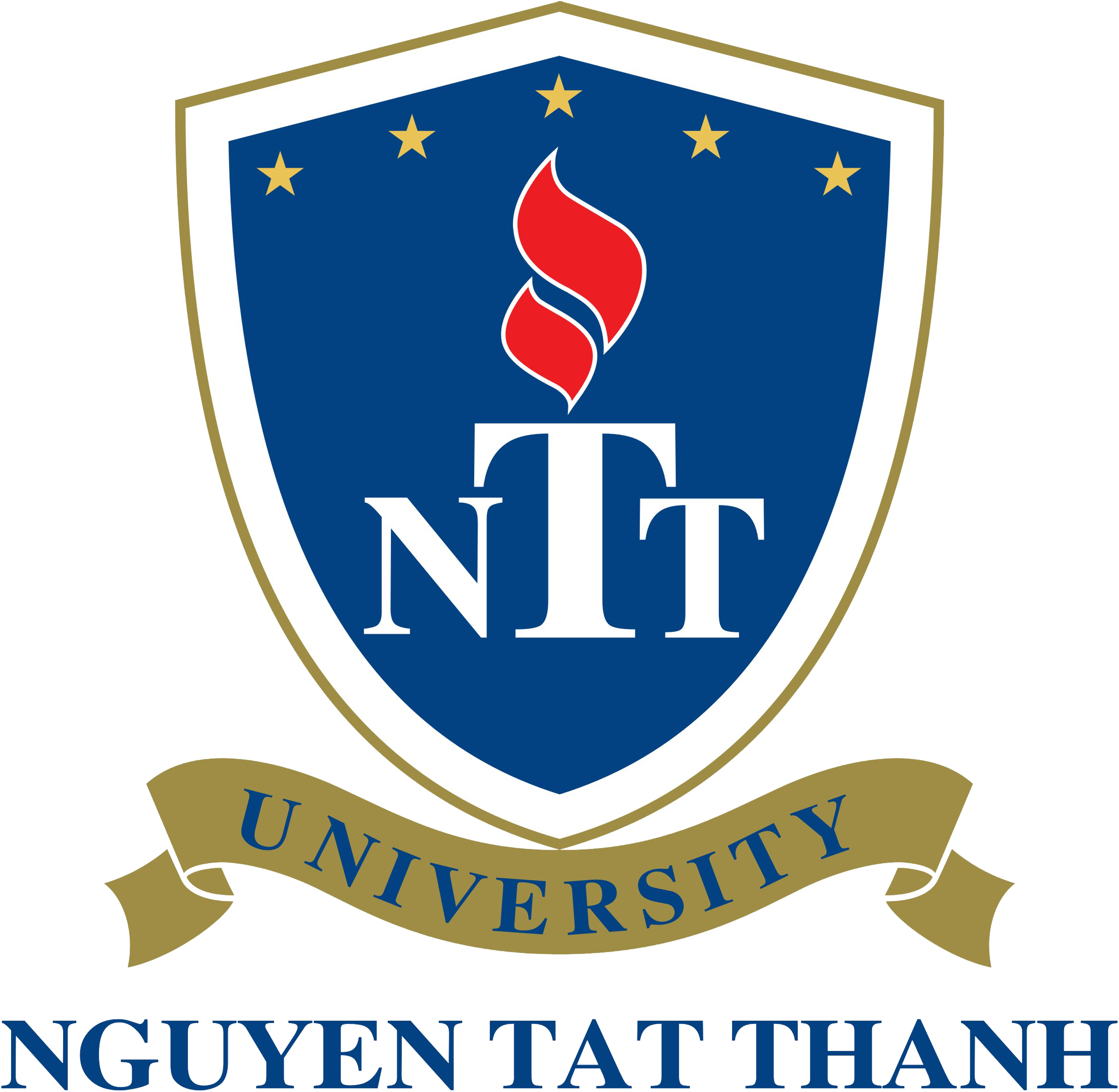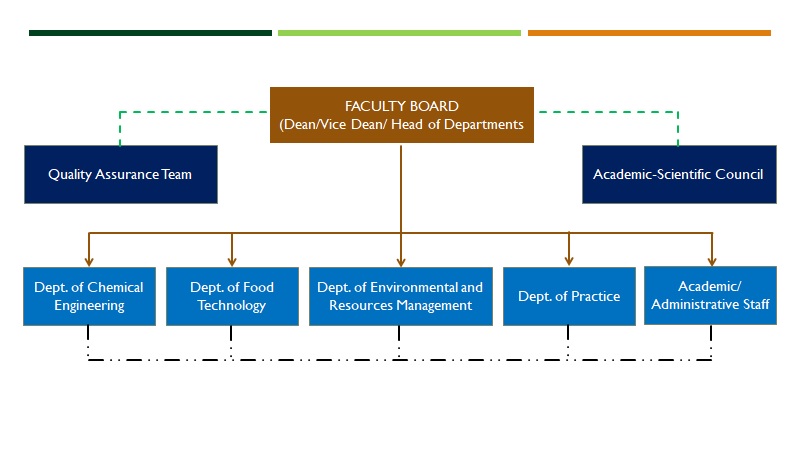Introduction to Faculty of Environmental and Food Engineering
On May 26, 2011, Assoc. Prof. Nguyen Manh Hung, Rector of Nguyen Tat Thanh University, signed the decision to establish Faculty of Chemical and Food Technology. Through the process of development to match the university’s development orientation, in May 2019, the faculty was officially renamed the Faculty of Environmental and Food Engineering. The Faculty currently offers 03 undergraduate programs (Food Technology, Chemical Engineering, and Environmental and Resources Management Department). At the present, the faculty has current 494 students. The total number of permanent faculty members of the faculty is 36, including 11 PhD holders, 5 PhD candidates and 14 MSc. The faculty also has 7 support staff (2 laboratory staff, 3 technicians, 1 academic assisstant and 1 secretary).
In the Development Strategy of the Faculty of Environmental and Food Engineering for the period 2020-2025, vision 2035, the faculty declares its vision and mission as follows:




